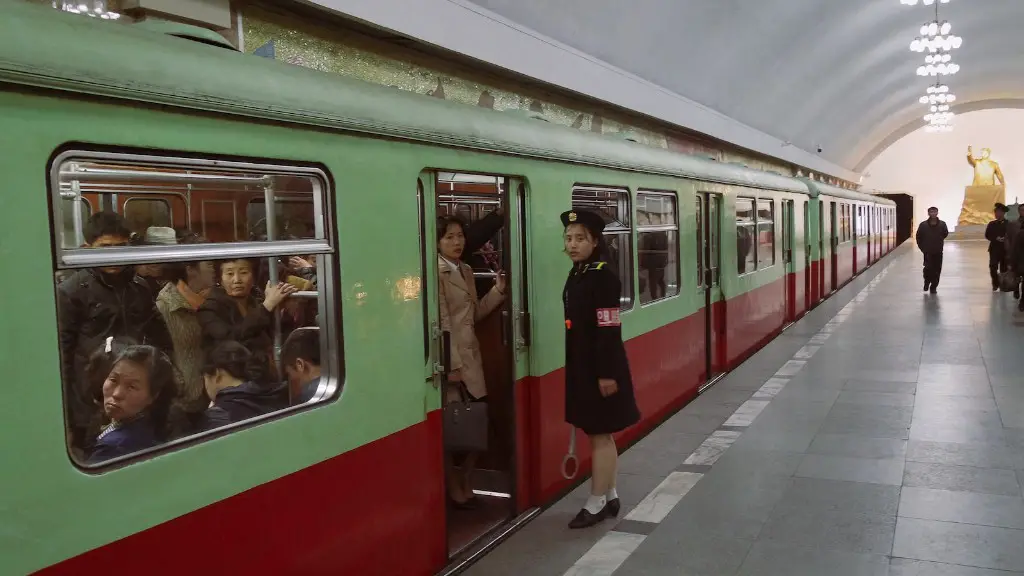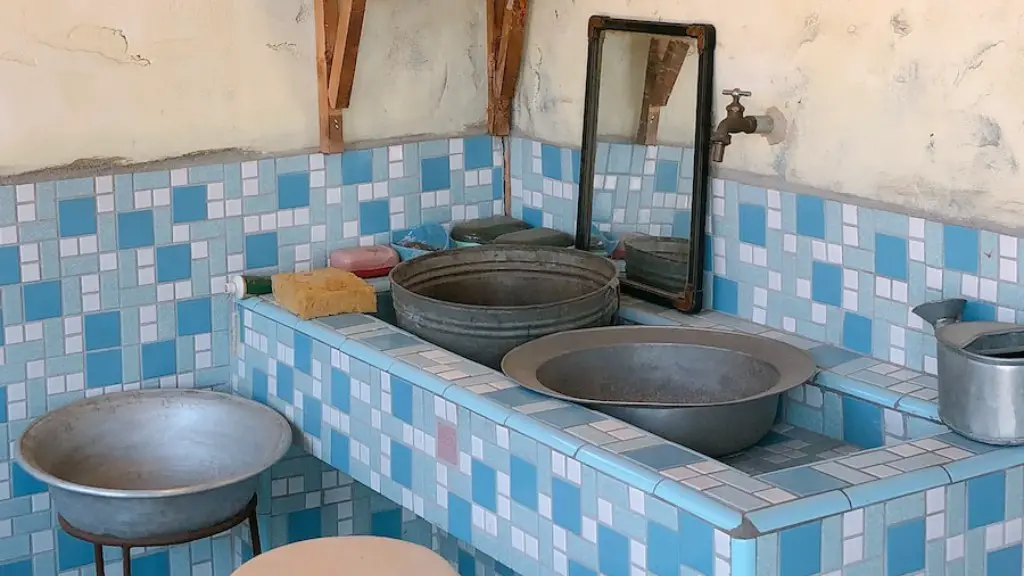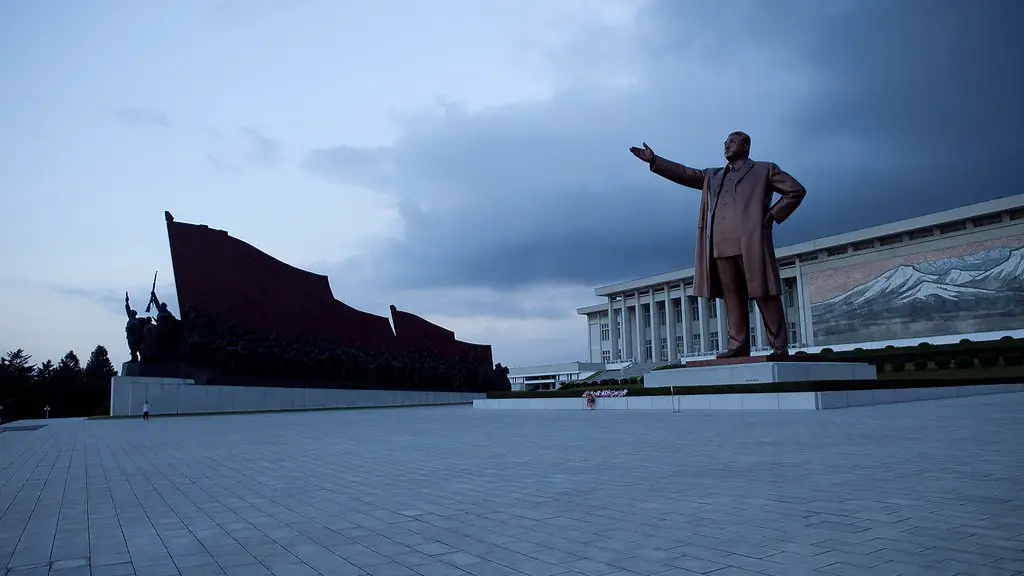Background Information
North Korea, officially known as the Democratic People’s Republic of Korea (DPRK), is a famously secretive and isolated nation located in East Asia. It has been ruled by the Kim family since it was founded in 1948 with Kim Jong-Un as its current Supreme Leader. The country has long been in conflict with its neighbours, particularly South Korea, as a result of historic and ideological disputes. This article will explore the conflict in North Korea, its causes and possible resolutions.
Current Status
The current situation in North Korea is one of deep distrust between various factions within and without the country. In addition to the ongoing tensions between North Korea and South Korea, tension has been escalating between the DPRK and the US due to nuclear weapon developments and its ballistic missile programme. This has resulted in a series of United Nations (UN) sanctions against North Korean interests, limiting its capabilities and hindering its growth.
North Korea’s governing system is a single-party authoritarian regime with an economy driven by heavy militarization and state-controlled resources, with limited international trade. Human rights are severely restricted, including free speech and press, with a large number of political prisoners allegedly detained. The country is also known to suffer from an extreme famine that has left some 3 million people dead since 1995.
Conflict Causes
The primary cause of the conflict in North Korea can be traced to the historical enmity between North and South Korea. Since 1948, the two countries have been divided by the mutually-agreed upon Demilitarized Zone (DMZ). This has perpetuated a deep-seated mistrust between the two sides, which has been used by North Korea as a way of maintaining power.
North Korea’s belligerent attitude towards the outside world is also a major contributor to the conflict. In addition to hosting military parades and conducting missile tests, the country has also issued a series of inflammatory statements that have only further inflamed the situation. The country’s nuclear ambitions, combined with its desire to be seen as powerful and independent, have further exacerbated the situation.
Experts Perspective
Experts agree that the conflict in North Korea is a complex situation that demands a multifaceted approach. Diplomatic solutions remain the preferred course of action, with the UN and some international organizations attempting to negotiate a peaceful settlement. However, many experts also agree that military solutions may also be necessary if diplomacy fails.
At the same time, experts stress that severe sanctions are unlikely to be effective in solving the conflict. Unable to rely on foreign trade and goodwill, North Korean leaders have become increasingly isolated, making them more likely to take aggressive action. Furthermore, the continued suffering of the North Korean people due to its broken economy has only further angered and hardened the hearts of its leaders.
Own Insights and Analysis
In my opinion, the crux of the conflict in North Korea lies not in its nuclear ambitions, but in its political system. The country is ruled not by a democratic state, but by a single-party authoritarian regime. As a result, North Korean leaders, who are only interested in maintaining their grip on power, have never really been interested in negotiating.
Furthermore, diplomatic solutions remain hampered by the deep-seated mistrust between the two sides. Even with multiple rounds of negotiations, none of the parties involved have been willing to make concessions. This is largely because of South Korea’s refusal to accept North Korea’s nuclear ambitions, as well as the fact that any concessions or agreements reached are met with suspicion and scepticism by both sides.
International Intervention
International efforts to resolve the conflict in North Korea have been hamstrung by the country’s isolation and its political system. The US has taken the lead in attempting to persuade North Korea to abandon its nuclear programme, however these efforts have so far been unsuccessful. Other countries have also tried to encourage dialogue between North and South Korea, however this too has not yielded significant results.
Although the UN has adopted multiple sanctions against North Korean interests, most notably its nuclear programme, these have not been sufficient to change the course of events. Many experts argue that the only way to truly de-escalate the situation is through direct dialogue between all parties involved.
Sanctions Implications
The effects of the UN sanctions against North Korea have been far-reaching, with a devastating human toll. The sanctions have crippled the country’s economy and limited its foreign trade and investment. This has resulted in widespread poverty and malnutrition, with UNICEF estimating that some 8 million people, or half the population, are in need of food aid.
Experts also agree that the sanctions have not been effective in deterring North Korea’s nuclear programme. Despite being increasingly isolated, the country has continued to develop and test its weapons, culminating in the recent successful test of an intercontinental ballistic missile. This reflects the failure of the international community to properly address and effectively resolve the conflict in North Korea.
Search for a Solution
In the absence of diplomatic solutions, some have suggested military action as a means of resolving the conflict in North Korea. Many experts agree that the military threat should be kept as a last resort, since any act of aggression could easily escalate the situation. Furthermore, a US-led military strike could have catastrophic results due to North Korea’s possible use of nuclear weapons.
At the same time, others have argued that the only way to truly resolve the conflict is through a negotiated peace deal. Such a deal should involve the signatory of a truce between the two sides, with subsequent negotiations concerning nuclear disarmament and economic growth. However, the difficult process of reaching such an agreement should not be underestimated, as this process would require the full cooperation of all parties involved.
Mutual Respect
The key to any successful resolution to the conflict in North Korea must lie in mutual respect. Although the two sides remain deeply divided, it is necessary for both sides to acknowledge each other’s needs and interests. For example, North Korea must be given assurances that it would not suffer discrimination or prejudice due to its nuclear programme.
Furthermore, North Korea must also be willing to negotiate in good faith, demonstrating a degree of openness and accountability. Such a posture would go a long way in allaying the fears of the US and its allies, as well as in re-establishing trust between the two sides. Only through such a concerted effort can the long-standing conflict in North Korea be effectively resolved.
Economic Cooperation
As an alternative to military intervention, experts have suggested the implementation of measures to promote economic cooperation in the Korean peninsula. This could involve the easing of sanctions and the development of joint hemispheric projects, such as infrastructure and energy generation. This could help foster mutual trust and restore the economic viability of North Korea, as well as lay the foundation for more meaningful dialogue.
Moreover, North Korea must also be allowed to participate in the global economy, with access to global financial institutions, foreign markets and global supply chains. This is essential in order for North Korea to engage in meaningful trade and rebuild its economy. Such a measure could improve the lives of North Koreans, thus paving the way for a more peaceful resolution to the conflict.
World Opinion
The ongoing conflict in North Korea has elicited a range of responses around the world, although most countries remain relatively silent. Some countries, such as China, have tried to mediate the negotiations between the two sides, although with limited success. Others, such as the US, have continued to pursue a policy of ‘maximum pressure’, utilizing the threat of severe sanctions to force North Korea to the negotiating table.
However, some observers argue that a policy of containment is unlikely to be effective in resolving the conflict. Rather, they suggest a more proactive approach that seeks to address the underlying causes of the conflict, such as poverty and inequality. Furthermore, a more constructive engagement with North Korea must also involve the full participation of all countries involved, in order to ensure a lasting peace.


